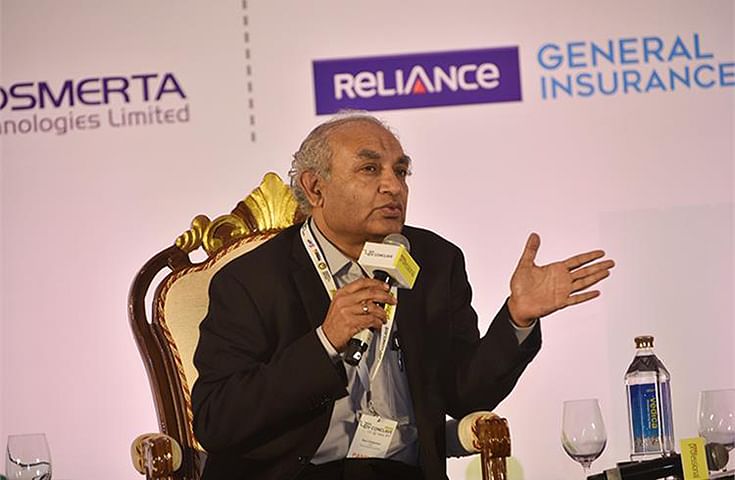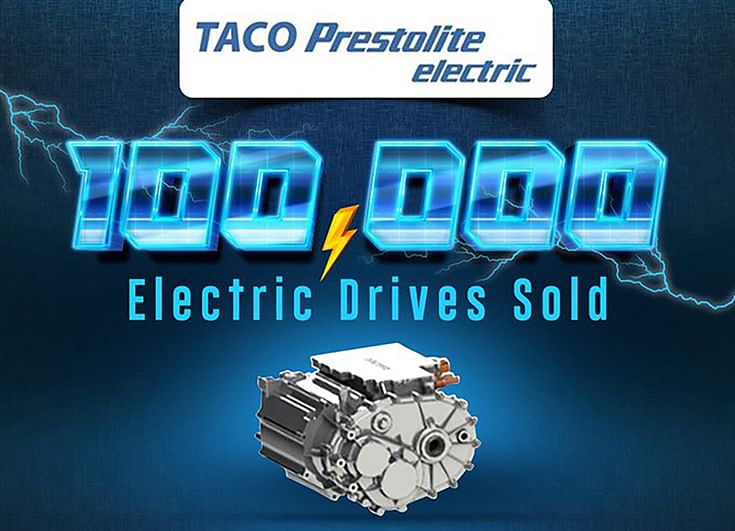Tata AutoComp Systems developing high-voltage EV components for global markets
The Indian Tier-1 supplier has initiated its journey towards the development of 300V-850V EV components and is also investing into their R&D, plant, and machinery.
Indian Tier-1 major Tata AutoComp Systems (TACO), which is part of the Tata Group, has begun developing high-voltage EV components that are going to be suitable for electric passenger vehicles that will be introduced in overseas markets such as Europe and America, which are the demand centres for high-performance EVs.
According to Ravi Chidambar, CEO, Tata AutoComp Systems, “There is a huge opportunity in India for high-voltage EV components (above 300V) that are witnessing demand from not just India but global markets. Therefore, there will be a future in this area, and we have already started some component development for 850V for the global markets. We have components in the range of 300-850V in the works and we are investing into R&D, as well as plant and machinery in this regard.”
Chidambar pointed out that EV components, right from the electric compressors, to traction motors, to the battery pack, will have to be calibrated for the high-voltage play, and have tremendous potential in overseas markets. He was speaking as a panellist in a discussion – Building the EV Supply Chain in India – at the Autocar Professional India EV Conclave in Chennai on November 21.

Ravi Chidambar, CEO, Tata AutoComp Systems: "We have a massive opportunity in terms of India’s domestic demand potential, and exports to countries like the US, Europe, and Mexico. We need to be agile and eye global markets for attaining scale."
He explained that while such high-voltage powertrains are unlikely to see a significant potential in India, particularly in the country’s electric passenger vehicle, two- or three-wheeler segments, the electric-bus category in the country, however, could catch on the high-voltage trend. “We do not expect the two-, three-wheeler segments, or the small-commercial vehicle category in India to venture into high voltages extensively,” Chidambar said.
Commenting on India’s opportunity to emerge as a global hub for the supply of EV components, Chidambar said that while it is impossible to transplant China’s scale into India, the latter could still adopt technology and accelerate its progress. “The Chinese scale is the order of magnitude higher than what we have today, and India has a lot of catching up to do. While we do not have the advantage of scale, we can still adapt to the technology. We need to ensure that our technology is frugal in nature, and is worthy of exporting it to the world,” he pointed out.
“Therefore, we have a massive opportunity in terms of India’s domestic demand potential, and exports to countries like the US, Europe, and Mexico. We need to be agile and eye global markets for attaining scale.
“Scale must also be done in a modular fashion, and component players must make incremental investments as well as hedge their bets. So, while acknowledging the fact that China is certainly a few years ahead when it comes to EV technology, and we must play catch-up in a smart way,” Chidambar added.
 Tata AutoComp Prestolite Electric JV recorded a production milestone of 100,000 integrated e-drivetrain supplies in November. It plans to now manufacture and sell 100,000 e-drive units within FY2025 itself.
Tata AutoComp Prestolite Electric JV recorded a production milestone of 100,000 integrated e-drivetrain supplies in November. It plans to now manufacture and sell 100,000 e-drive units within FY2025 itself.
Aiming to produce 100,000 EV traction motors in FY2025
Chidambar cited an example of Tata AutoComp Systems’ recent accomplishment of selling 100,000 EV traction motors with its partner Prestolite Electric within a span of 47 months into the joint venture in January 2020, and said that the company adopted a frugal approach, and begun with low localisation levels, and plant capacities, and gradually scaled them. “We now plan to produce 100,000 motors in the next financial year itself. What took China a decade, is only taking India a few years,” he said.
Tata AutoComp’s offering for the EV segment includes motors, controllers, integrated drivetrain (integrated motor, inverter and reducer), battery pack, BMS, battery thermal management system, batter cooling plates, inverter cooling modules, chillers, e- compressors, radiators as well as EV chargers required to charge the EVs.
ALSO READ:
Surging demand for EVs driving global goods recovery: WTO
EV sales soar to 139,000 units in October and 1.23 million in first 10 months of 2023
RELATED ARTICLES
Cosmo First diversifies into paint protection film and ceramic coatings
The Aurangabad, Maharashtra-based packaging materials supplier is leveraging its competencies in plastic films and speci...
JSW MG Motor India confident of selling 1,000 M9 electric MPVs in first year
The 5.2-metre-long, seven-seater luxury electric MPV, which will be locally assembled at the Halol plant in Gujarat, wil...
Modern Automotives targets 25% CAGR in forged components by FY2031, diversifies into e-3Ws
The Tier-1 component supplier of forged components such as connecting rods, crankshafts, tie-rods, and fork bridges to l...






 29 Nov 2023
29 Nov 2023
 10800 Views
10800 Views










 Autocar Professional Bureau
Autocar Professional Bureau




